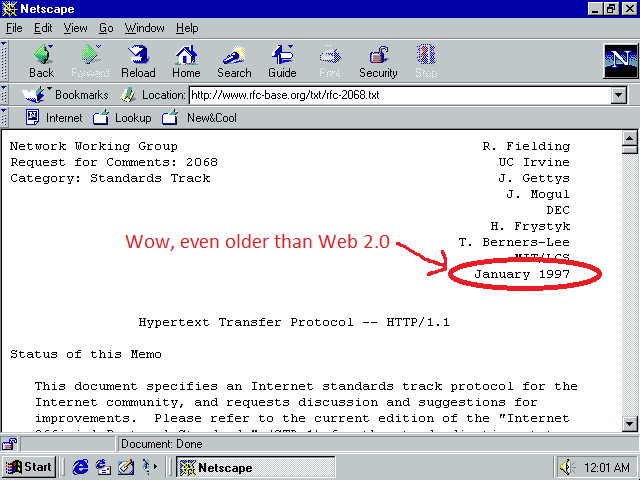for i in */; do zip -r "${i%/}.zip" "$i"; done
Symfony directory structure comparison
Below you can find basic directory structure for Symfony 2.8, 3.4 using Symfony Installer and for Symfony 4 using Symfony Flex. There is no vendor content on each of the diagrams.
Comparison
Symfony 2.8
├── app │ ├── Resources │ │ └── views │ ├── cache │ ├── config │ │ ├── config.yml │ │ ├── parameters.yml │ │ ├── routing.yml │ │ ├── security.yml │ │ └── services.yml │ ├── logs │ ├── AppKernel.php │ ├── SymfonyRequirements.php │ ├── console │ └── phpunit.xml.dist ├── bin │ ├── doctrine │ ├── doctrine-dbal │ ├── doctrine.php │ └── security-checker ├── src │ └── AppBundle │ ├── Controller │ ├── Tests │ └── AppBundle.php ├── web │ ├── bundles │ ├── app.php │ ├── app_dev.php ├── composer.json └── composer.lock
Symfony 3.4
├── app │ ├── Resources │ │ └── views │ ├── config │ │ ├── config.yml │ │ ├── parameters.yml │ │ ├── routing.yml │ │ ├── security.yml │ │ └── services.yml │ └── AppKernel.php ├── bin │ ├── console │ └── symfony_requirements ├── src │ └── AppBundle │ ├── Controller │ └── AppBundle.php ├── tests │ └── AppBundle ├── var │ ├── cache │ ├── logs │ ├── sessions │ ├── SymfonyRequirements.php │ └── bootstrap.php.cache ├── web │ ├── app.php │ ├── app_dev.php ├── composer.json ├── composer.lock └── phpunit.xml.dist
Symfony 4
├── assets ├── bin │ ├── console │ └── phpunit ├── config │ ├── packages │ │ ├── dev │ │ ├── prod │ │ ├── test │ │ ├── doctrine.yaml │ │ ├── doctrine_migrations.yaml │ │ ├── framework.yaml │ │ ├── routing.yaml │ │ ├── security.yaml │ │ └── twig.yaml │ ├── routes │ │ ├── dev │ │ └── annotations.yaml │ ├── bundles.php │ ├── routes.yaml │ ├── services.yaml ├── public │ └── index.php ├── src │ ├── Controller │ ├── Entity │ ├── Migrations │ ├── Repository │ └── Kernel.php ├── templates ├── tests ├── translations ├── var │ ├── cache │ └── log ├── composer.json ├── composer.lock ├── package.json ├── symfony.lock └── webpack.config.js
Design Patterns PHP po polsku
Postanowiłem przypomnieć sobie wzorce projektowe i natrafiłem na bardzo fajne repozytorium (Design Patterns PHP), które obfitowało w opisy konkretnych wzorców z przykładami realizacji w PHP. Brakowało polskiego tłumaczenia. Dlatego, aby połączyć przyjemne z pożytecznym, przetłumaczyłem całą dokumentację na polski.
TL;DR
Wybór odpowiedniego kodu odpowiedzi HTTP – przestań utrudniać sobie życie!
Poniższy tekst jest mniej lub bardziej udanym tłumaczeniem artykułu Choosing an HTTP Status Code — Stop Making It Hard :).
Nie ma rzeczy prostszej niż zwrócenie kodu odpowiedzi HTTP. Strona się wyświetliła? Świetnie, zwróćmy kod 200. Strona nie istnieje? To kod 404. Przekierowujemy użytkownika na inną stronę? No to 302 albo 301.
Życie jest piękne dopóki ktoś powie Ci, że nie używasz REST-a. Nie możesz w nocy spać, bo zastanawiasz się, czy Twoja aplikacja zwraca zgodny z REST-em i zatwierdzony przez Roya Fieldinga kod odpowiedzi. Czy wystarczy 200? Czy powinien to być raczej 204 No Content? Nie, na pewno to powinien być 202 Accepted… a może jednak 201 Created?
To co komplikuje nam sytuację, to oficjalny standard HTTP/1.1, RFC, które pierwotnie powstało w 1997 roku (nie zawracaj sobie głowy RFC 2616, ani tym bardziej RFC 2068, zobacz RFC 7231). 1997 to rok, kiedy zacząłem przeglądać internet na Netscape Navigator i swoim modemie 33,6 kbps. To trochę jak używać Sztuki wojennej Sun Zi do współczesne strategii biznesowej. Nieśmiertelne rady, ale nie wyobrażam sobie jak wykorzystać pięć sposobów walki ogniem do testowania rynku.
Gdyby tylko istniał jakiś wizualny sposób na wybranie tylko tych istotnych kodów?
Proszę bardzo, internecie. Ten dzień nadszedł!
RegExp likwidujący zawieszki
This one is not in english since related to polish texts only 🙂
Zawieszki to pojedyncze znaki zostawione na końcu linijki – takie jak i, z, w, itd. Ze względu na Polską Normę składania tekstu, zostawianie takich znaków na końcu wiersza jest błędem.
Chodzi o to, żeby mieć jednego regexpa, który usuwa zawieszki w zwykłym tekście, ale i w htmlu, w taki sposób, żeby nie patrzył w tagi.
(?(?=.*[<>].*)\s+([ziowauZIOWAU])\s+(?=[^>]*<)|\s+([ziowauZIOWAU])\s+)
Tutaj ciekawym trikiem jest wykorzystanie ifa i sprawdzenie czy tekst przypomina HTML czy nie.
Co więcej założeniem tego regexpa jest to, żeby przypadkiem nie mieszał w tagach html, tylko w samym tekście. Na przykład, żeby nie zamienił <span class=”elem i elem2″> na <span class=”elem i elem2″>
Można się tym rozwiązaniem pobawić tutaj.
Comparing two directories with rsync
If you want to compare two directories using rsync.
rsync -avun $SOURCE $TARGET # content checsum check rsync -avnc $SOURCE $TARGET
source: StackExchange
Repetitive rsync
Some time ago I’ve been moving from one hosting provider to another. I had to transfer the files from A to B and used rsync for that. But unfortunately rsync command was crashing due to some timeouts. So I’ve found really nice script for auto restore.
rsync-auto.sh
#!/bin/bash
while [ 1 ]
do
/usr/bin/rsync -avz --progress $1 $2
if [ "$?" = "0" ] ; then
echo "rsync completed normally"
exit
else
echo "Rsync failure. Backing off and retrying..."
sleep 10
fi
done
Execute
rsync-auto.sh SOURCE DESTINATION
source: stackoverflow.com
Generating lottery codes – how many combinations will I have?
Here is a task. You have to prepare the schema for lottery codes. You have to generate lets say 1 000 000 codes that are 6 characters long. Client’s question is ‘Is that safe?’. This is a good question and you have to do some basic math to be sure that the combination of the code length and alphabet size give you enough combinations so users can’t guess other codes.
Simple example
Alphabet: A, B
Code length: 3 characters
So we have possible combinations:
AAA
AAB
ABA
ABB
BBB
BBA
BAA
BAB
So we have 8 possible combination for 3 characters code with 2 characters alphabet.
23 = 8
Later on, if we have 11 characters in our alphabet and 9 character code we will have
119 = 2 357 947 691
so if client wants 1 000 000 of codes, this scheme seems to be quite secure since is like 0,0424% of all possible combinations.
PHP console output colouring
If you want to have nice output colouring of your PHP scripts or those from Symfony Console, you should install POSIX extension to your PHP version.
sudo port install php56-posix
To jak zrobimy ten projekt? Czyli o doborze technologii słów kilka
Title: To jak zrobimy ten projekt? Czyli o doborze technologii słów kilka
Venue: StartUp LAB #5, 02.03.2016
Slides: Slideshare



